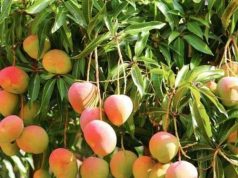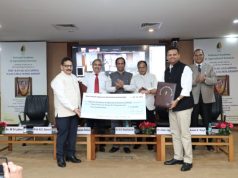Home
OPINIONS Reimagining Sustainable Farming: How Corporate Vision and Technology are Reshaping the Coconut...
Reimagining Sustainable Farming: How Corporate Vision and Technology are Reshaping the Coconut Farming Sector
The Coconut tree— aptly called the ‘Tree of Life’, is a vital pillar of the global agrarian economy worldwide, especially in India. India produces 30.93% of the world’s coconuts and contributes around Rs.307,956 million to the country’s GDP. For countless farmers, this centuries-old practice is their primary source of livelihood. However, the industry is grappling with significant challenges, including aging tree populations, fragmented supply chains, and limited access to markets and technology for smallholder farmers.
These issues result in declining yields, inefficiencies, and marginalization of those who rely on coconut farming. Currently, the traditional coconut farming landscape has been characterized by inefficiencies, with farmers reliant on outdated practices, low yields, susceptibility to pests and diseases, and limited market access. To address these issues and unlock the full potential of this valuable crop, a paradigm shift is underway, driven by corporate vision and technological innovation. By investing in research and development, they are developing innovative solutions that enhance productivity, sustainability, and profitability. For instance, through advanced breeding techniques, corporations are creating coconut varieties with superior traits such as higher yield, disease resistance, and improved fruit quality.
Challenges in coconut farming
One of the most significant challenges facing the coconut farming industry is the vulnerability of coconut trees to pests and diseases. Traditional pest control methods often involve the use of harmful chemicals that can have negative environmental consequences. However, corporations are developing innovative pest control solutions that are more sustainable and effective. For example, biological control agents, such as beneficial insects and microorganisms, can be used to target specific pests without harming beneficial organisms.
Additionally, advanced monitoring techniques can help detect pests and diseases at an early stage, allowing for timely intervention and reducing the need for excessive pesticide use. Companies are also promoting sustainable farming practices that minimize environmental impact and ensure long-term viability. This includes initiatives such as organic farming, agroforestry, and water conservation.
The enabling efforts of Corporates is poised to revolutionize the coconut farming industry. AI-powered platforms analyse complex variables like weather patterns, soil moisture, and pest infestations, providing personalized recommendations to optimize crop growth and reduce losses. The adoption of precision agriculture technologies, including drones, satellite imagery, and IoT sensors, enables farmers to monitor their crops in real-time and make data-driven decisions. This precision approach helps optimize resource use, reduce waste, and improve crop health.
Additionally, blockchain technology enhances traceability, transparency, and accountability throughout the supply chain, ensuring authenticity, quality, and compliance with sustainability standards, ultimately transforming the industry, empowering farmers, and promoting sustainable practices that benefit the environment and local communities.
Coconut farming industry undergoing transformation
The coconut farming industry, long perceived as labour-intensive and yielding limited returns, is undergoing a transformative revolution through the integration of digital tools, data-driven decision-making, and a renewed corporate commitment to sustainability and farmer empowerment. Digital platforms provide real-time insights on soil health, weather patterns, and market trends, enabling farmers to make informed decisions, while precision agriculture techniques facilitated by drones and satellite imaging optimize irrigation and fertilization, minimizing environmental impact.
Corporate entities are driving this transformation, investing in sustainable practices and farmer empowerment programs to ensure a stable supply chain and contribute to local community well-being. This modernized approach improves yields and quality, enhances farmers’ economic prospects, and attracts younger generations to the profession. As the industry evolves, its potential to contribute to global food security, rural development, and environmental stewardship becomes increasingly evident, poised to shed its traditional image and emerge as a vibrant, resilient, and sustainable sector.
As we celebrate World Coconut Day this year, it is extremely vital that we acknowledge the profound importance of the Tree of Life, which provides food, fuel, shelter, and income for countless families. By energising the coconut farming community, we can unlock its full potential, ensuring the long-term sustainability of this vital industry.
Views of the author are personal and do not necessarily represent the website’s views.
 Amit Bhasin is the Chief Legal Officer, Group General Counsel, and Secretary of the CSR Committee at Marico Limited. He is part of the Executive Committee of Marico Limited and is responsible for Legal and Corporate Affairs Function for Marico Group both in India and International markets. Amit Bhasin is member of Governance Committee of Marico and also anchors Corporate Social Responsibility function of Marico. With 19+ years of experience, Amit is an active member of various industry bodies, including FICCI FMCG Committee.
Amit Bhasin is the Chief Legal Officer, Group General Counsel, and Secretary of the CSR Committee at Marico Limited. He is part of the Executive Committee of Marico Limited and is responsible for Legal and Corporate Affairs Function for Marico Group both in India and International markets. Amit Bhasin is member of Governance Committee of Marico and also anchors Corporate Social Responsibility function of Marico. With 19+ years of experience, Amit is an active member of various industry bodies, including FICCI FMCG Committee.













